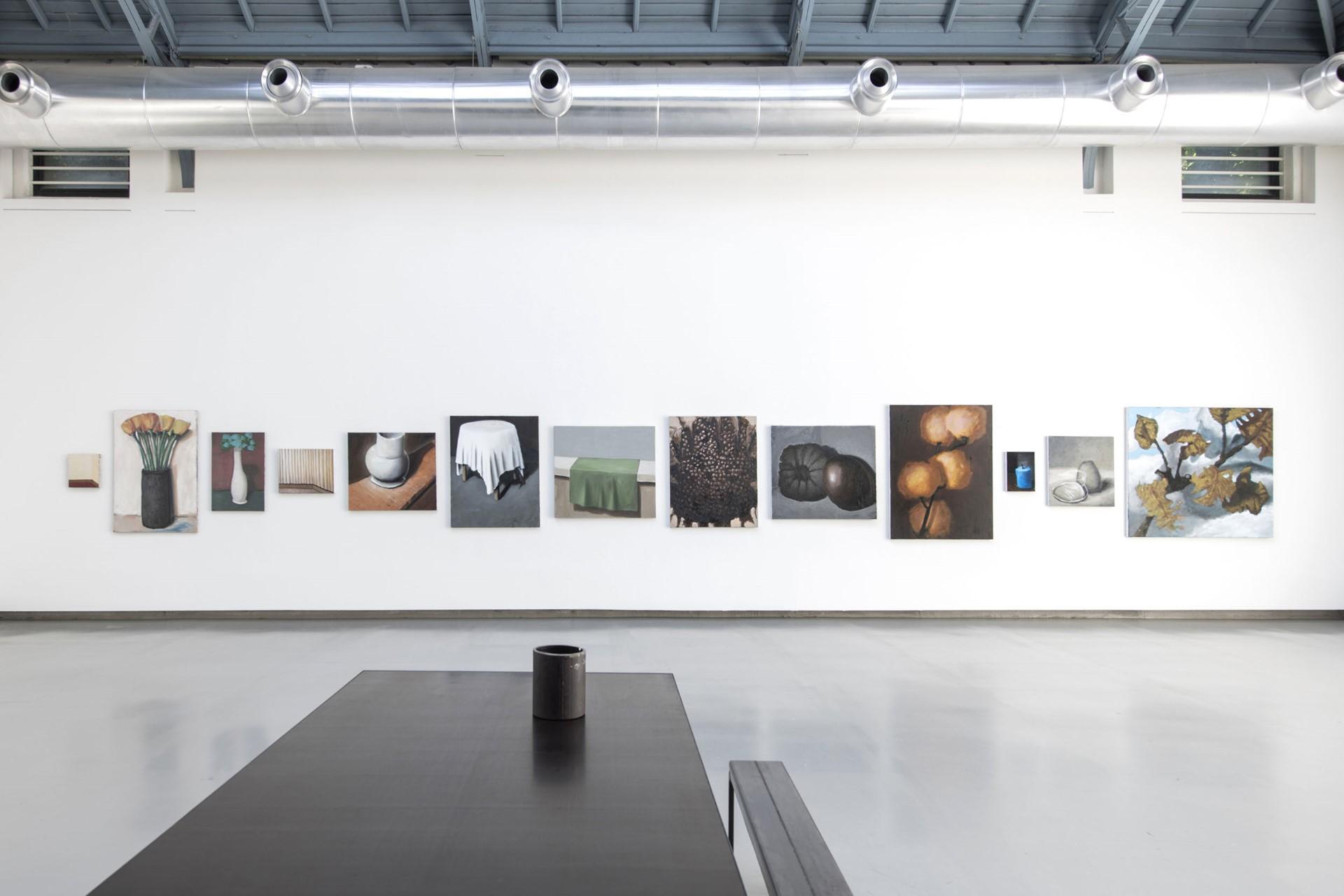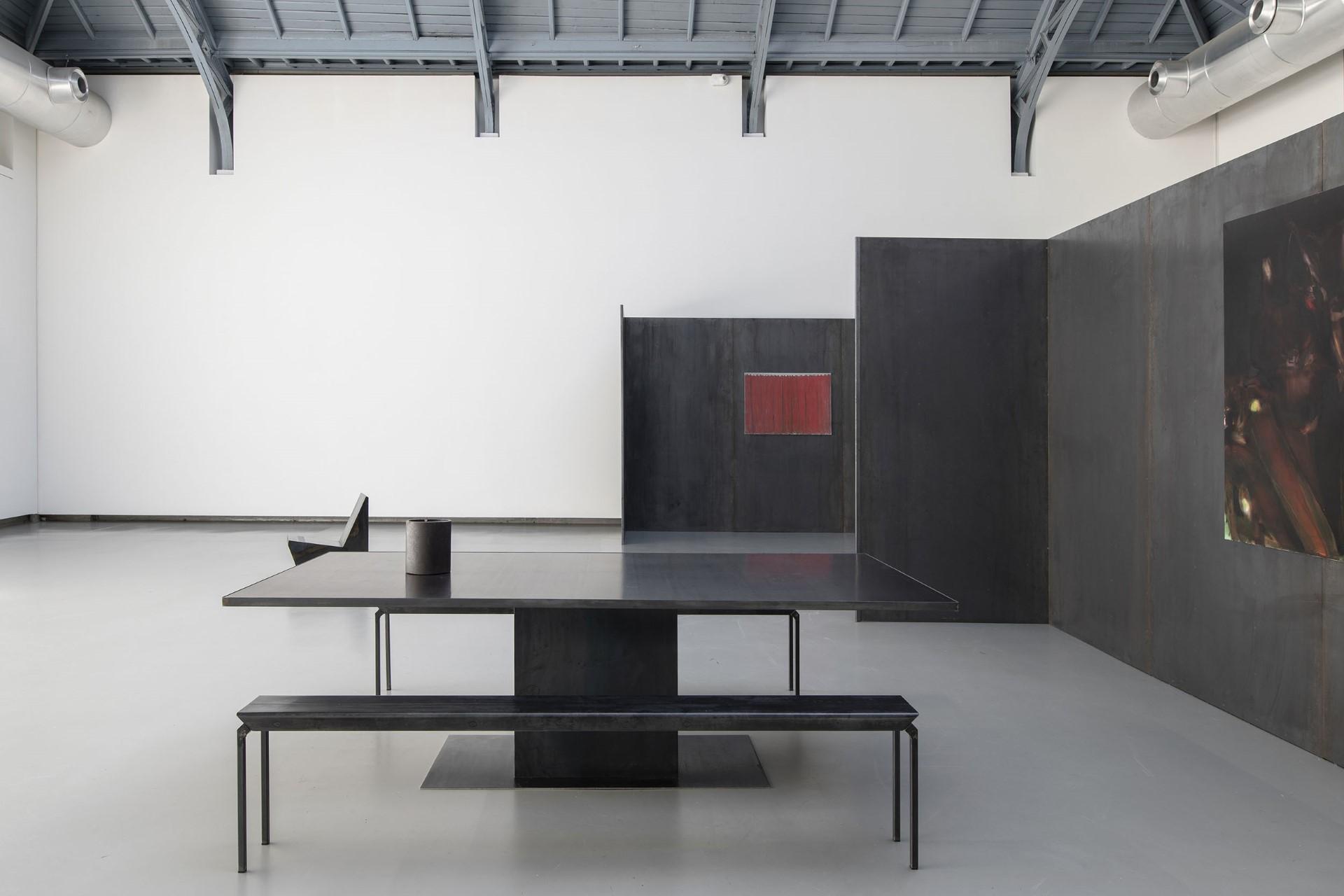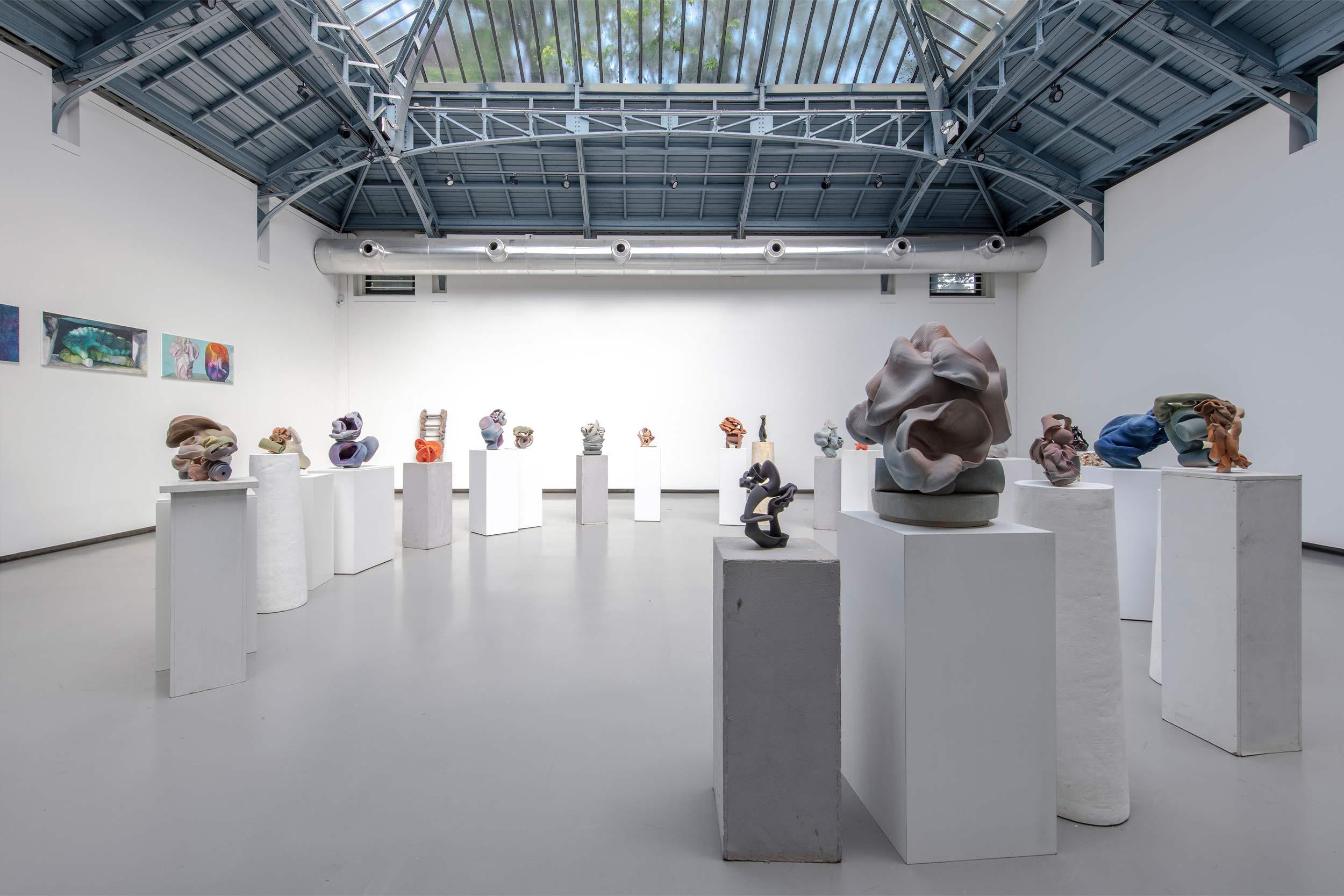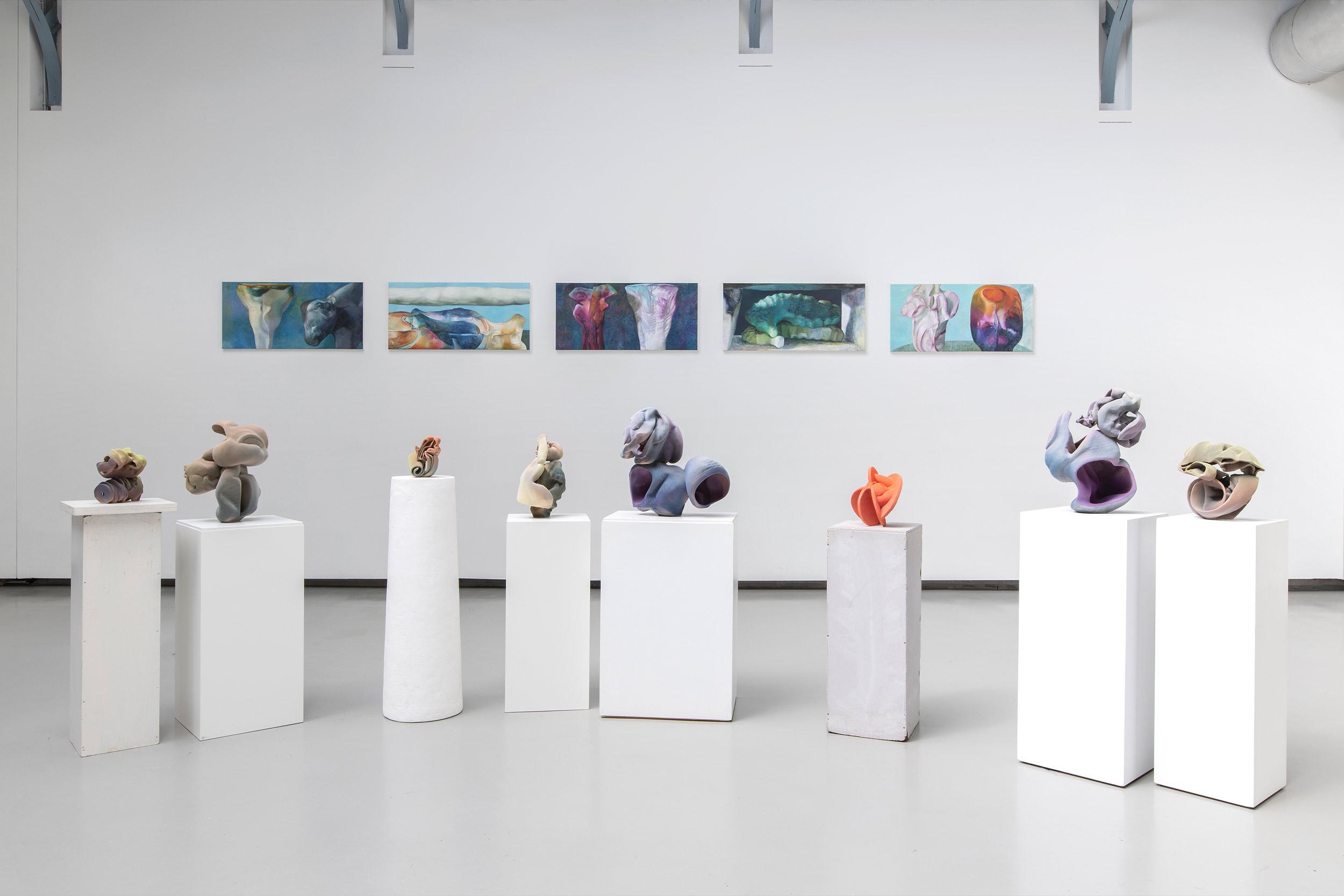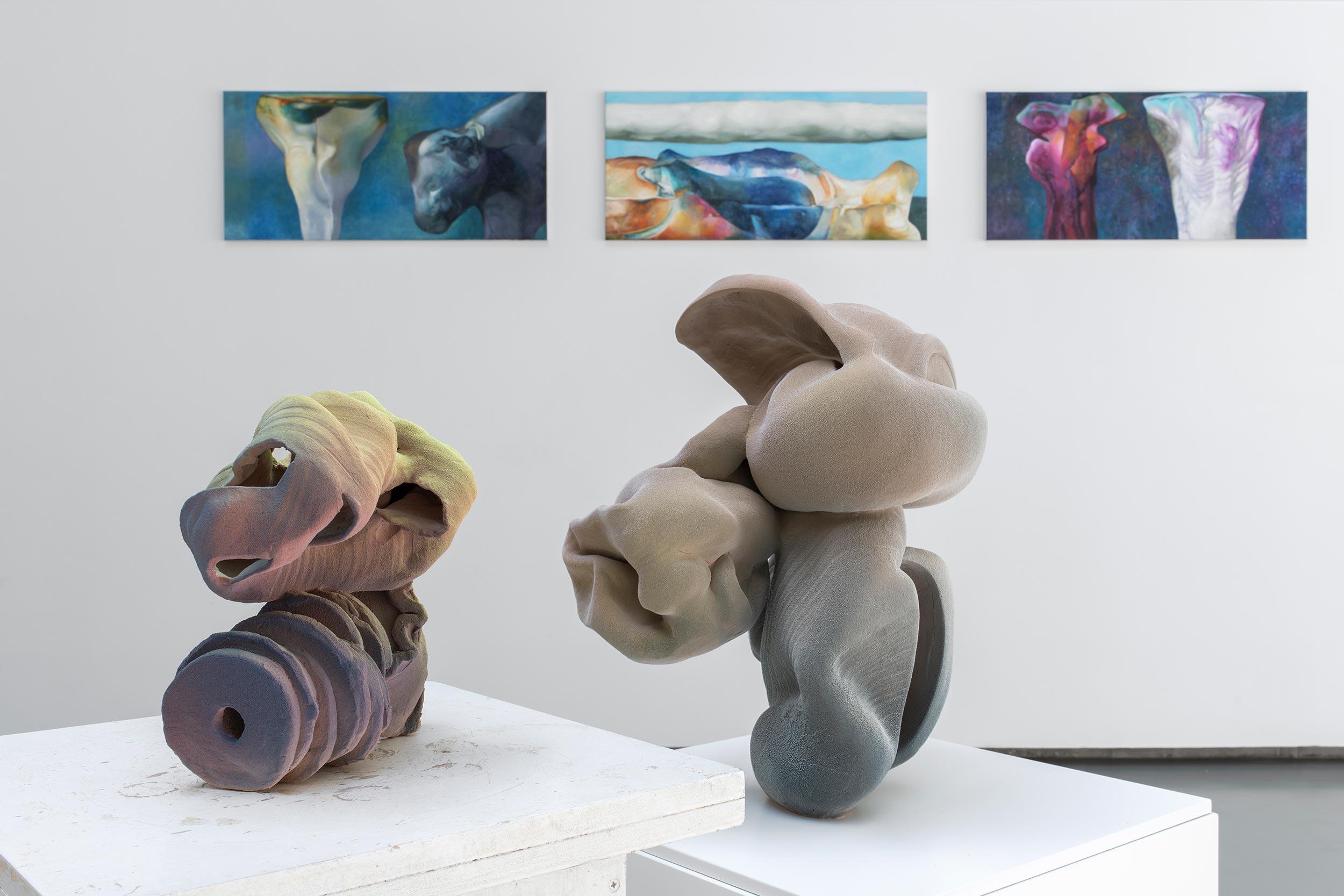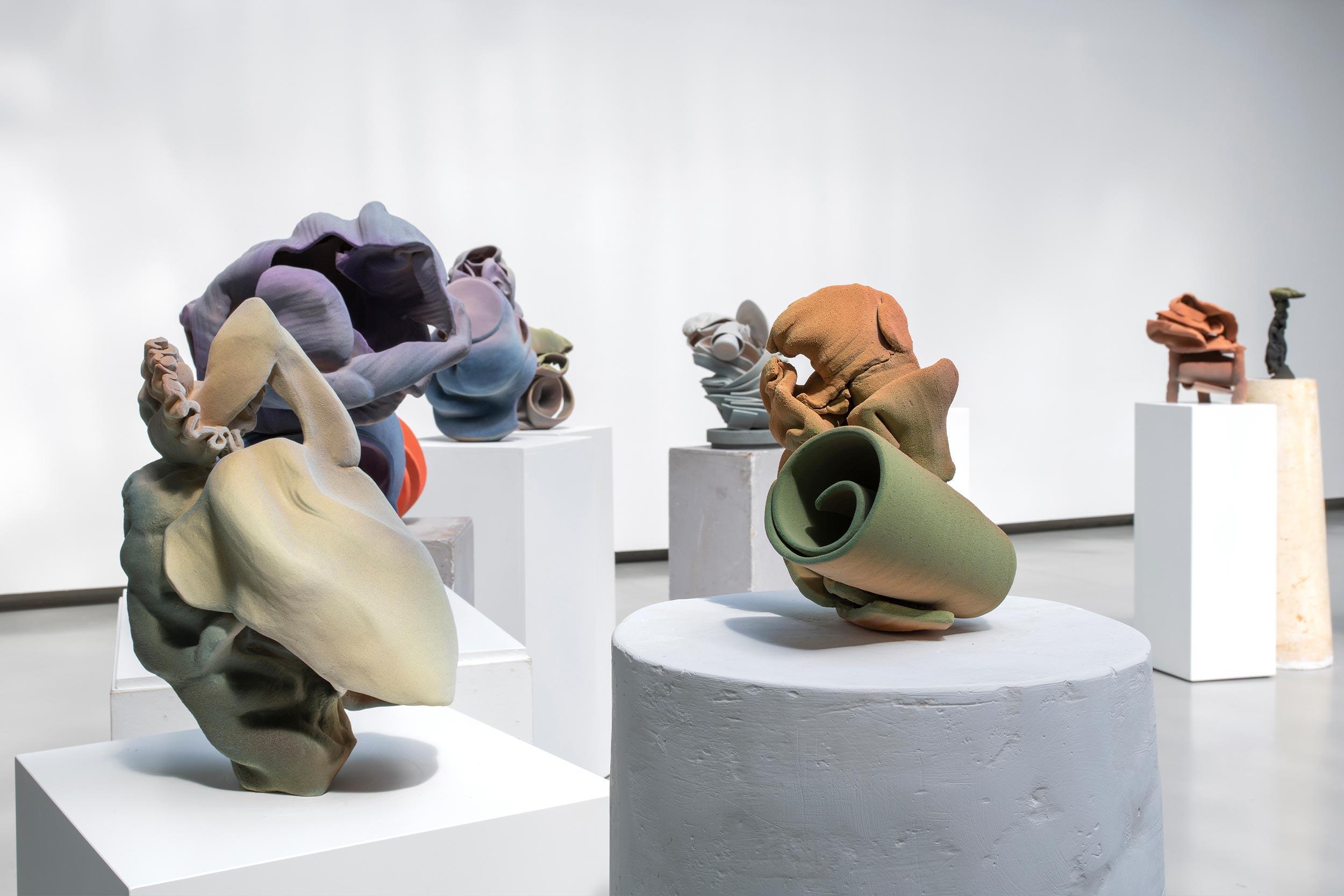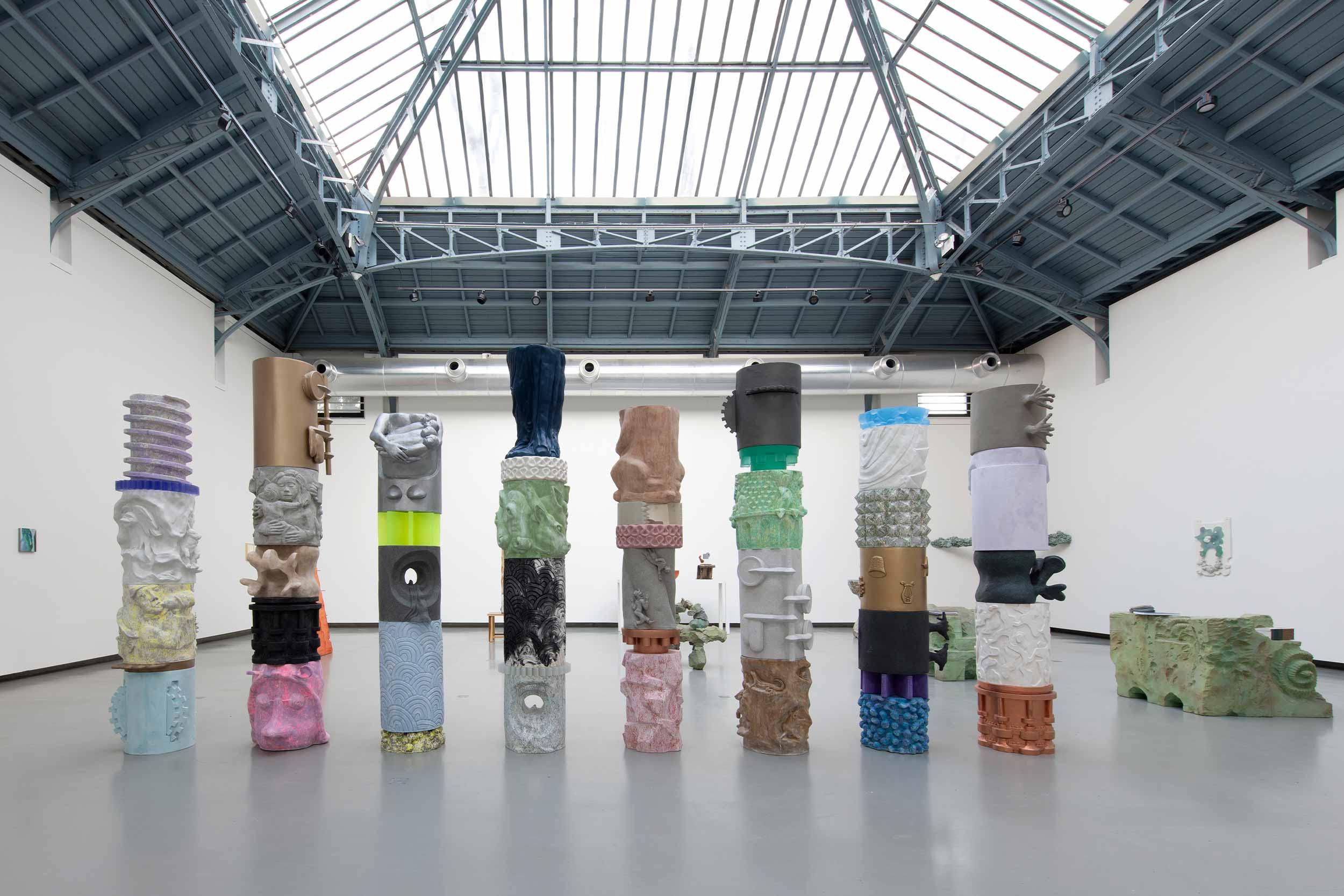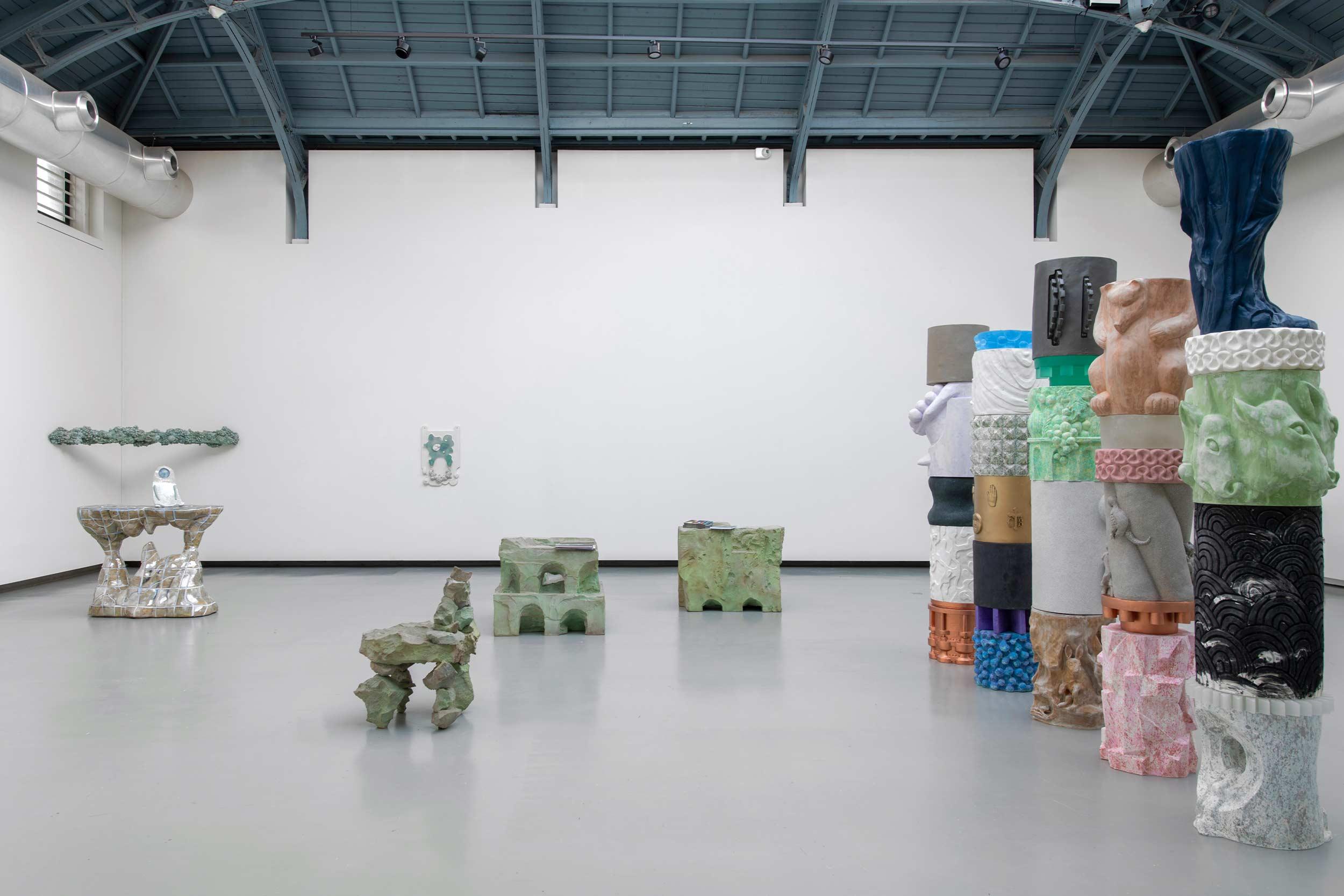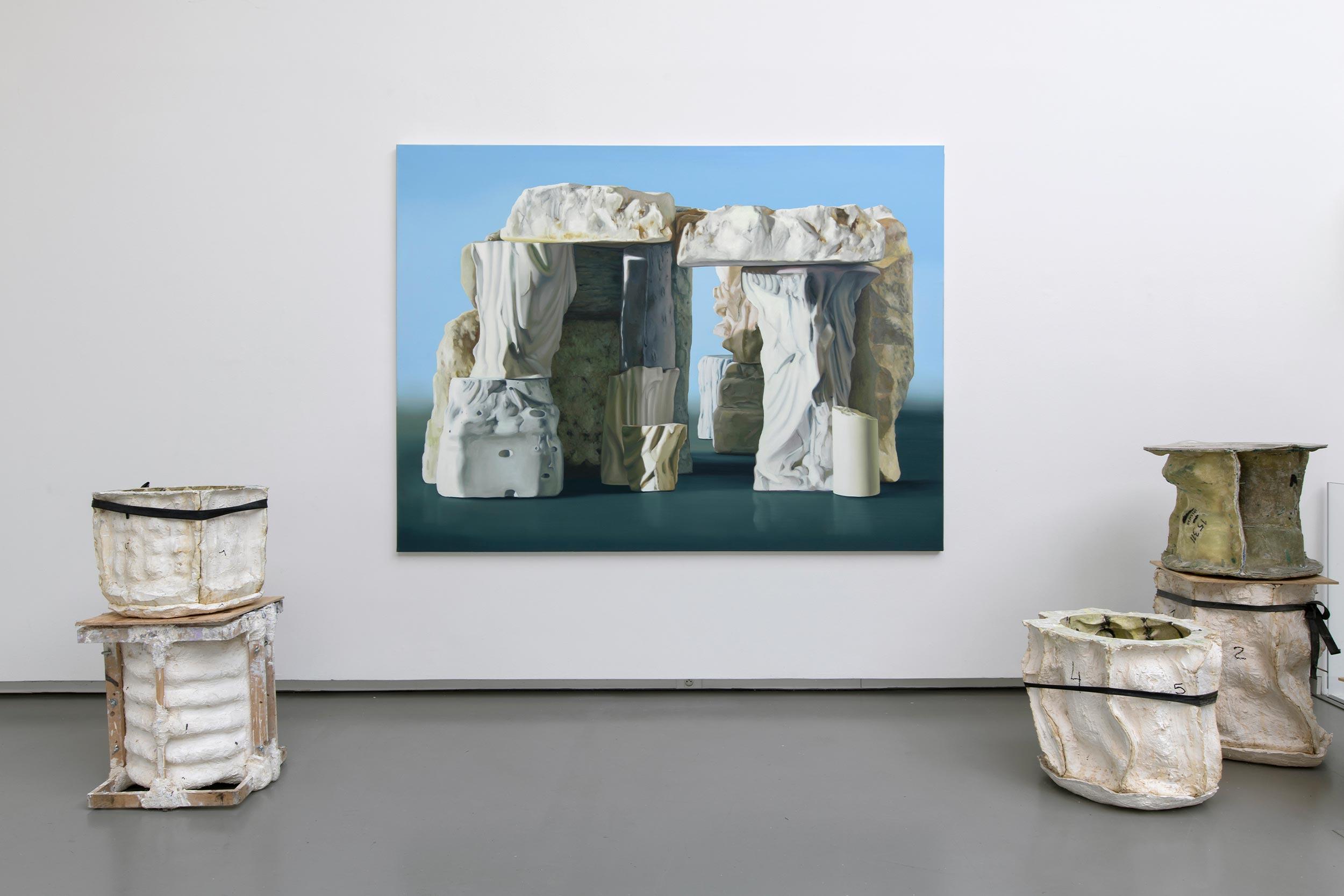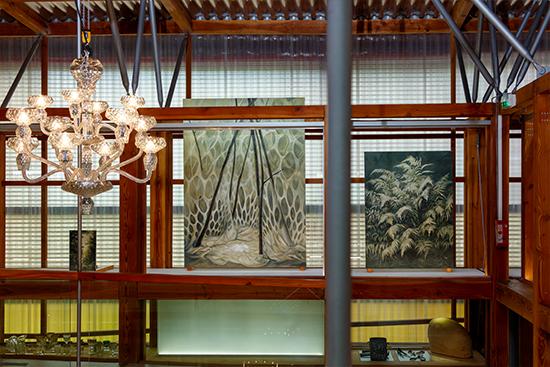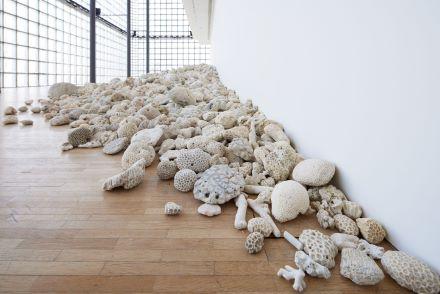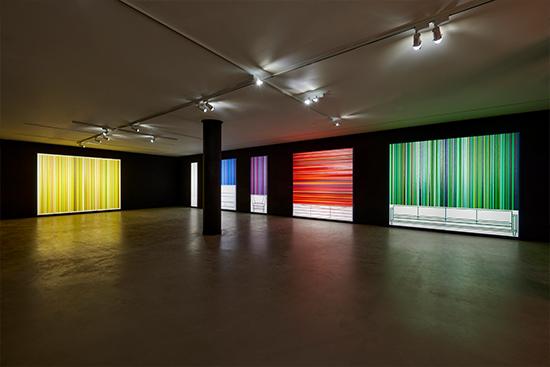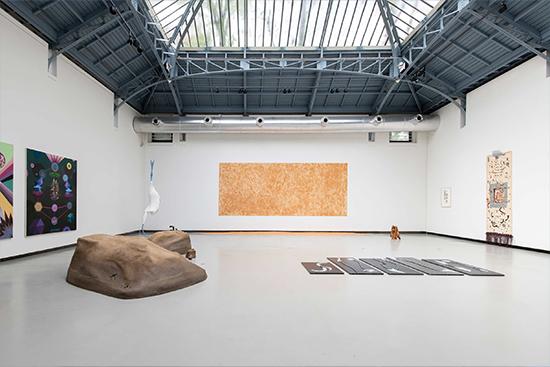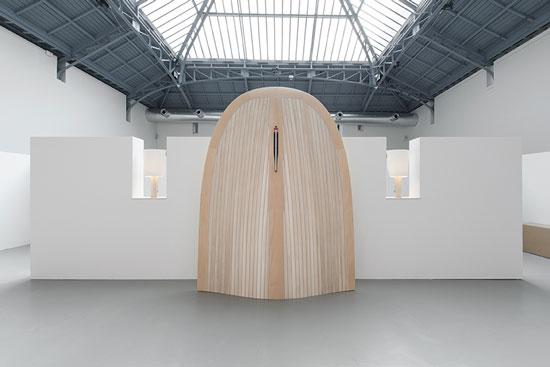Since 2016, Marion Verboom (b. France, 1983) has been continuously expanding her series Achronies: sections of columns, distinguished from each other by their patterns and materials, are stacked to create an infinite succession of composite forms. “Chryséléphantine”, the first exhibition in Belgium by this French artist, references the name of a combination of precious materials (gold and ivory) practised since Antiquity. This classical and technical reference further acts as the touchstone for the approach that Joël Riff adopts in his wider hybrid project, which is committed to celebrating sculpture in all its diversity. Marion Verboom incorporates elements from her studio into the Achronies series, including moulds that reveal her methodology by their very forms.
This solo exhibition unfolds in a generous fashion, exploring links and synergies with a number of other artists (Richard Deacon, Tjok Dessauvage, Henri Laurens, Maude Maris, touche-touche and Chloé Vernerey) whose respective approaches to art dialogue with that of Marion Verboom and open up perspectives on other practices. Beyond La Verrière, the exhibition resonates with Brussels itself: the history and heritage of the city have inspired new motifs in Marion Verboom’s oeuvre. Finally, it continues its journey in the form of a new publication featuring a serialised story penned by Amélie Lucas-Gary.
The second exhibition conceived by Joël Riff, “Bise”, invokes a meteorological metaphor to define the works of Anne Marie Laureys, its title an affectionate name for the North wind that blows across Europe. Shaking up the ancient practice of pottery, the artist, born in 1962 in Belgium, first deforms and then assembles clay turned on a wheel, creating improbable shapes whose balance only the firing process can hold. Thus, her works take on complex forms, often turned upside down or inside out, rolled up or hollowed out, tapered, compressed or stretched. They defy the classical vocabularies of sculpture, while at the same time celebrating tactility through the visible imprint left by the artist’s hand on these indefinable volumes. “Bise”, the sculptor’s first exhibition in Brussels, celebrates the vitality of breath and the contact of surfaces, juxtaposing Anne Marie Laureys’ pieces – whose colours evoke atmospheric phenomena – with those of other artists. A sculpture by Auguste Rodin highlights the sensuality of forms in his and Laureys’s work. Painter Maude Maris and writer Amélie Lucas-Gary, who also took part in the previous exhibition at La Verrière, enter into further dialogues with the work of Anne Marie Laureys. This long-form approach to companion works, running over several exhibitions, underscores the exhibition space’s role as a place of convergence and encounter.
For his third exhibition, Joël Riff turns to the paintings of Cristof Yvoré (1967-2013), inviting the public to (re)discover the work of this artist through thirteen paintings created over a span of twenty years. With the title “Coi”, an archaic French adjective meaning “speechless” or “silent”, the curator of La Verrière points to the enduring nature of these still lifes: with their calm constancy, they provide an experience of permanence and are less still than hushed. For this first exhibition in Brussels, the French painter's work is displayed among a community of artists: with paintings by Eugène Leroy and Raoul De Keyser, two artists who Cristof Yvoré admired greatly, as well as by his close friend Loïc Raguénès, with whom he never exhibited during his lifetime. A younger generation of French artists are also represented by Mireille Blanc and Milène Sanchez. Furniture by the Brussels duo Noir Métal welcomes visitors to the exhibition, while Amélie Lucas-Gary contributes a new chapter of Proue to the exhibition publication. Shrouded in silence, this posthumous exhibition attests to the undiminished power of Cristof Yvoré's hauntingly spare painting.
